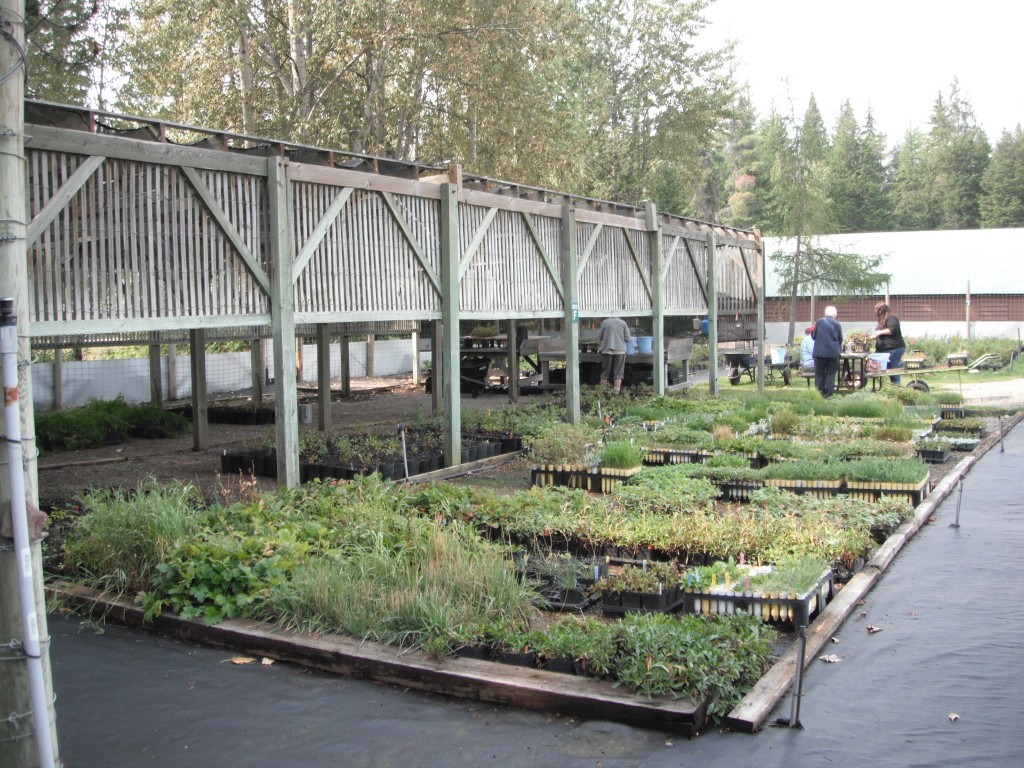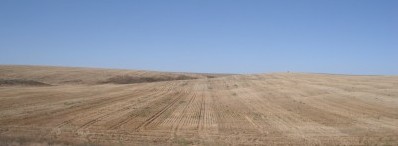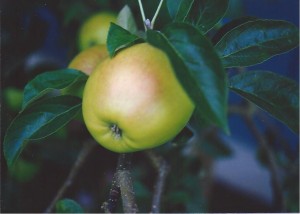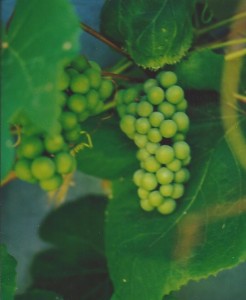Horticulture provides food for body and soul
When I tell someone I am a Horticulturist, I often have to explain what that is. Most people know that Botany is the study of plants, so I often tell them that horticulture is the applied science of botany. Horticulture comes from the Latin hortus “garden” and cultūra “cultivation.” Whereas agriculture (agri-=acre or field) usually refers to large-scale cultivation of single species crops such as grain, horticulture usually refers to gardening on a much smaller scale and the growing of a wider variety of crops.
There are many different specializations within the field of horticulture that generally can be grouped into two main categories – edibles and ornamentals.
Olericulture is the production of herbaceous vegetables which includes: Sweet corn, Greens such as spinach, lettuce, & celery; Cole crops – cabbage, broccoli, cauliflower; Root crops – beets, carrots, radishes; Bulb crops – onions, garlic, leeks; Legumes – beans, peas, lentils; Cucurbits – melons, squash, cucumber; and Solanaceous crops – tomatoes, peppers, potatoes.
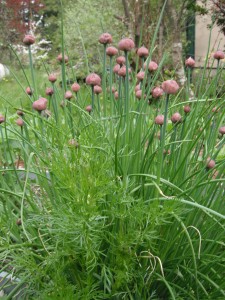
Chives, Allium schoenoprasum, is the only allium native to both the old & new worlds. It can be found in Alaska.
Herbalists grow plants for flavor, fragrance or medicinal purposes. Herbs are often included in the vegetable garden or grown in a special herb garden. They may also be incorporated into the ornamental landscape.
Pomology, although most specifically applies to the cultivation of pome fruits (apples, pears), it is often used more generally to include stone fruits (cherries, plums, peaches, apricots, almonds) and every other tree fruit, nut or berry.
Viticulture (Viti– = vine) is an even more specialized field usually applied to growing grapes.
Ornamental Horticulture includes: Arboriculture, the evaluation, care, maintenance and pruning of trees; Floriculture, the production of floral crops including cut flowers and potted gift plants; Greenhouse & Nursery management, the propagation, production and sales of plants; Landscape Architecture, the art of landscape design; and Landscape Horticulture, the planting, care, and maintenance of landscape plants.
Forestry is often allied with horticulture. It is the growing and management of timber crops. Other plants, such as bamboo and grasses & stems for weaving may also be grown for the useful materials they provide.
The need for a secure food source caused many primitive societies to give up the nomadic “hunter-gatherer” lifestyle and adopt a more sedentary life to plant and tend food crops. The traditional “family farm” or larger estate often incorporated both animal husbandry and the growing of crops. It was critical for survival to grow and preserve enough food for the whole community and their animals. The ownership of land became synonymous with wealth which needed to be defended from plunderers.
Sometimes in the quest for wealth, we are more interested in “cash crops.” It is often forgotten that workers and their children, need a healthy diet that includes fresh fruits and vegetables. In some places, indigenous peoples have had to give up traditional foods and now rely too heavily on imported rice or corn. Many people need to be reeducated on how to grow fresh fruits and vegetables for their families and how to prepare them for inclusion in their daily diet.
 “Maslow’s Hierarchy of Needs” ranks the most important human needs in five levels. The 1st is physiological needs, which includes breathing, water, food, clothing, shelter, and sleep. The 2nd is Safety: security of body, employment, resources, family, health, & property. The 3rd is Love & Belonging: friendship, family and intimacy. The 4th is Esteem: achievement, confidence and respect. The 5th is Self-actualization: creativity and striving to reach one’s full potential. In theory, each fundamental need must be met before a person’s energy and passion can fully attend to a higher level. These are all we really need to be happy, not the material things that we buy to try to make us feel good—Money really “can’t buy happiness” after all our most basic needs are met.
“Maslow’s Hierarchy of Needs” ranks the most important human needs in five levels. The 1st is physiological needs, which includes breathing, water, food, clothing, shelter, and sleep. The 2nd is Safety: security of body, employment, resources, family, health, & property. The 3rd is Love & Belonging: friendship, family and intimacy. The 4th is Esteem: achievement, confidence and respect. The 5th is Self-actualization: creativity and striving to reach one’s full potential. In theory, each fundamental need must be met before a person’s energy and passion can fully attend to a higher level. These are all we really need to be happy, not the material things that we buy to try to make us feel good—Money really “can’t buy happiness” after all our most basic needs are met.
The science of horticulture can do more than teach us how to grow the food that nourishes our bodies. It can be used therapeutically for our physical and mental well-being. Nurturing living things makes us feel good and encourages us to learn even more about plants and the garden ecosystem. It also fulfills higher level needs to artistically create beautiful gardens within which we can cocoon ourselves in visual and fragrant splendor.
(This article was first published in the Peninsula Gateway on Dec 7, 2011)


